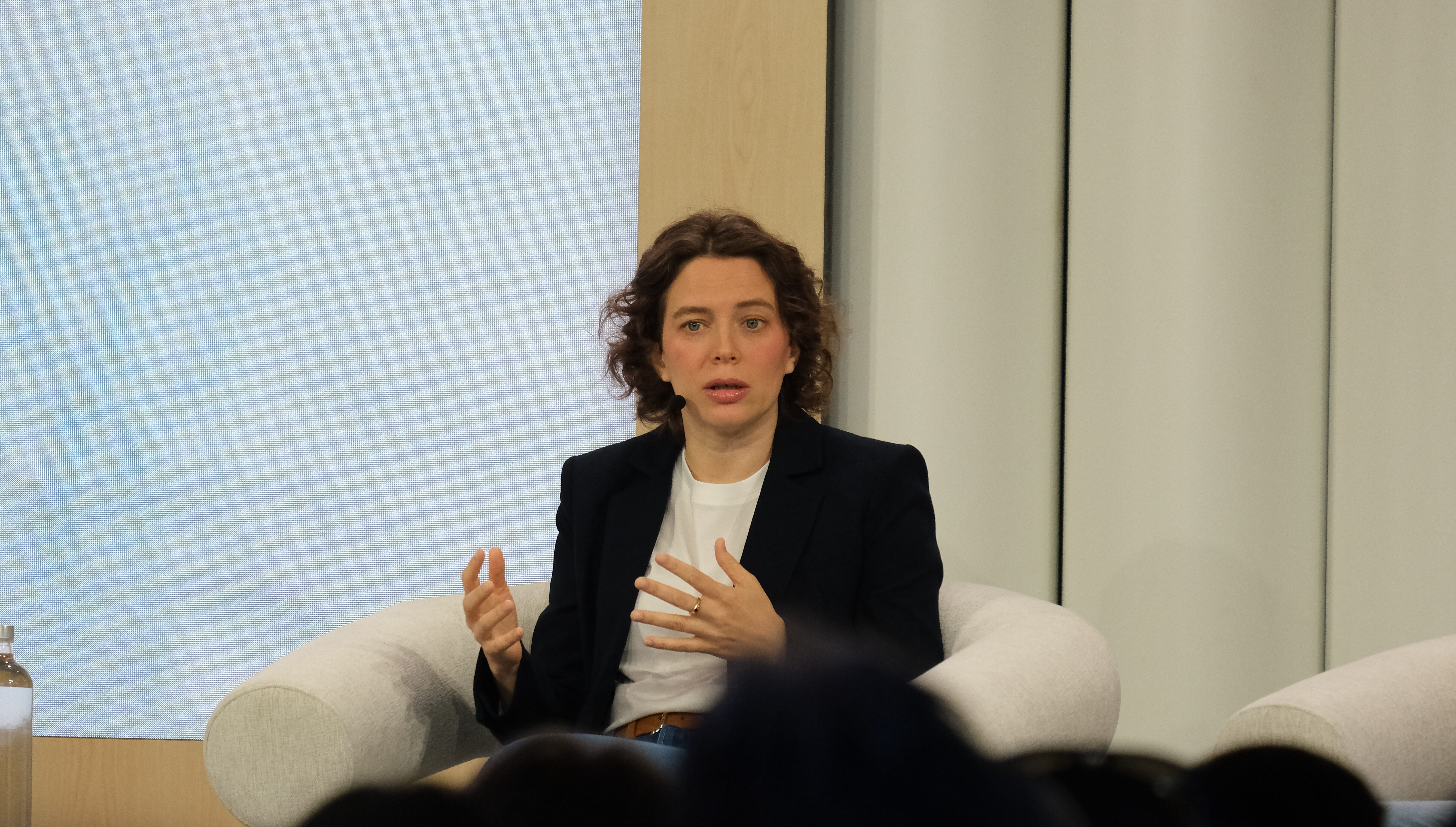And you get AI Mode, and you get AI Mode, and…
The future of search comes at you fast.
Google pokes a little fun at itself for talking about AI so much, but it’s serious about this shift. Credit: Ryan Whitwam
MOUNTAIN VIEW, Calif.—Google used to be all about the 10 blue links, but that was then, and this is now. You have to scroll farther than ever to get to the links in Google search results, and now this trend is being taken to its ultimate conclusion. At I/O, the company has announced a major expansion of AI Mode search, which heralds a new era for its signature product. There are big changes coming, some of which will start rewriting the web sooner than you think.
The past several years at Google have been marked by an all-consuming obsession with generative AI. It has invaded your search results as AI Overviews, but Google has made it clear at I/O 2025 that AI Overviews was just practice. AI Mode is the game. Everyone at Google is acutely aware of this shift—at the end of the I/O keynote, CEO Sundar Pichai showed a cheeky AI counter graphic that tracked how many times speakers had mentioned “AI” and “Gemini.” But Google is serious about AI in general and AI search in particular.
To that end, the AI Mode search that debuted a few months ago as a Labs experiment is graduating to the main Google search page for everyone, and it’s available to everyone. It’s not the default way of searching the web, but it seems like only a matter of time before that happens. According to Pichai, people search more and enter longer, more complex queries in AI Mode, which is exactly the kind of search AI is good at handling.
As AI Mode increasingly takes over the search experiences, you’ll notice some new features. AI Mode is running a customized version of Gemini 2.5, and Google wants the answers generated by it to be relevant to the person asking. The best way to do that, it would seem, is to pipe some of your personal data into AI Mode. That’s starting with support for Gmail, which allows AI Mode to adjust based on things like booking emails and online purchase receipts. Google is careful to point out you can enable and disable this feature at any time, and AI Mode will indicate when it’s using your personal context.
AI Mode as Google’s next frontier
Google is the world’s largest advertising entity, but search is what fuels the company. Quarter after quarter, Google crows about increasing search volume—it’s the most important internal metric for the company. Google has made plenty of changes to its search engine results pages (SERPs) over the years, but AI mode throws that all out. It doesn’t have traditional search results no matter how far you scroll.
To hear Google’s leadership tell it, AI Mode is an attempt to simplify finding information. According to Liz Reid, Google’s head of search, the next year in search is about going from information to intelligence. When you are searching for information on a complex issue, you probably have to look at a lot of web sources. It’s rare that you’ll find a single page that answers all your questions, and maybe you should be using AI for that stuff.
Google search head Liz Reid says the team’s search efforts are aimed at understanding the underlying task behind a query. Credit: Ryan Whitwam
The challenge for AI search is to simplify the process of finding information, essentially doing the legwork for you. When speaking about the move to AI search, DeepMind CTO Koray Kavukcuoglu says that search is the greatest product in the world, and if AI makes it easier to search for information, that’s a net positive.
Latency is important in search—people don’t like to wait for things to load, which is why Google has always emphasized the speed of its services. But AI can be slow. The key, says Reid, is to know when users will accept a longer wait. For example, AI Overviews is designed to spit out tokens faster because it’s part of the core search experience. AI Mode, however, has the luxury of taking more time to “think.” If you’re shopping for a new appliance, you might do a few hours of research. So an AI search experience that takes longer to come up with a comprehensive answer with tables, formatting, and background info might be a desirable experience because it still saves you time.
As part of Google’s AI Mode rollout, it’s previewing some upcoming features, including shopping results (Google likes money, after all) and Deep Search. The latter is a more “agentic” take on search, using the same fan-out technique as standard AI Mode but taken to the extreme. By gathering more data, Google predicts expert-level reports on your most complex search queries. It will take longer to create a result, but for some searches, that may still save you time. This feature is still in testing, but Google suggests we could see it roll out later this year.
Search is on the road to AGI
AI Mode is adopting an agentic take on search, moving Google closer to its goal of deploying AI that has human-like capabilities—artificial general intelligence, or AGI. That kind of system could theoretically answer any question you have by poking around the web much faster than you ever could. Google co-founder Sergey Brin isn’t shy about predicting the future, noting during an I/O talk that he believes Gemini will become the world’s first AGI before 2030.
There’s a long way to go before we get there, and Google’s leadership is upfront about that. According to DeepMind CEO Demis Hassabis, it’s still far too easy to find the gaps in today’s AI systems. Even the best generative AI gets simple things wrong at random. We’ve all seen that when an AI hallucinates a person or piece of media or screws up simple arithmetic. According to Hassabis, identifying errors in an AGI should take a team of data scientists months. Currently, anyone can trip up AI in minutes. Hassabis slightly disagrees with Brin on the timeline for AGI, but not by much. He thinks Gemini will be something we could call AGI in the early 2030s.
Whether Google’s AI search actually saves you time right now is heavily dependent on what you need to know. But as the company expands AI, you’re probably going to see more robots talking to you and fewer search results. We can only hope that we are getting closer to the AGI future envisioned by Hassabis and Brin before Google puts the blue links even more out of reach.
Ryan Whitwam is a senior technology reporter at Ars Technica, covering the ways Google, AI, and mobile technology continue to change the world. Over his 20-year career, he’s written for Android Police, ExtremeTech, Wirecutter, NY Times, and more. He has reviewed more phones than most people will ever own. You can follow him on Bluesky, where you will see photos of his dozens of mechanical keyboards.





